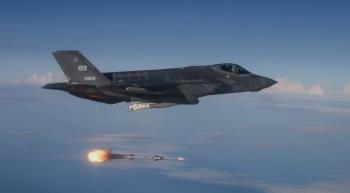Alwaght- Anti-terrorist operations are in full swing in Tunisia from military manoeuvers in the mountains to the tracking of sleeping terrorist cells in the cities.
Wedged between Libya and Algeria, Tunisia has become another Arab country to battle an extremist expansion with security officials saying that militants are infiltrating Tunisia from its southern border.
Just 70 kilometres away from Tunisia, thousands of militants train in militant camps and plot to carry out terrorist attacks in the region stoking fears among Tunisian authorities and public of rising radical activities in the country.
Militants are trained in Serbata before they take desert routes into Tunisia receive arms and ammunition and wait for the green light.
Tunisian security forces are on high alert to counter terrorism as part of strategies that may lead to the formation of national intelligence agency to take pre-emptive measures.
During the Club de Madrid meeting on the “Global Policy Dialogue on Preventing and Countering Violent Extremism”, the Tunisian premier Habib Essid revealed: “Tunisia is laying, in its war on terror, the foundations for a multifaceted national strategy that involves the security, prevention, cultural and development components.”
“Tunisia's army and police need appropriate equipment in addition to training given the proliferation of arms and armed groups on its southern border; Tunisia relies on its partners and friends to help it in this regard,” he stressed.
Tunisia has been rocked by an insurgency in the west along the Algerian border where policemen have been regularly killed.
To its south, a spill-over from an internal conflict in neighbouring Libya doesn’t seem far from reality. Concerns have arisen, in particular, over using Tunisia as a departure point for Syria where many extremists from North Africa are heading to fight against the Syrian government among the ranks of ISIS. Also, large amounts of arms caches have been found on the Tunisian side of the border with Libya.
The large number of Tunisians who have joined the war in Syria and the thousands of others who have been prevented from reaching their destination have also become a matter of alarm for Tunis. The presence of extremists willing to pick up arms against Damascus on the basis of a fanatic ideology is worrisome enough for Tunisians who also consider the return of militants from Syria to be a grave threat.
Two notable attacks which took place this year targeting civilians have stoked fears of radicalization within Tunisia. On 26 June 2015, an armed gunman opened fire at the tourist resort north of the city of Sousse killing 38 people including thirty British nationals. Three months earlier an attack on the Bardo National Museum shocked the world with its brutality.
However, unlike other Arab states, Tunisia is not as susceptible to the grip of radicalism spread by ISIS due to its small role as a regional player as well geography. ISIS is aiming high with its sight on countries like Iraq and Syria.
Nevertheless, terrorist attacks in the country which is attempting to quell possible bloodshed have been able to destabilize Tunisia and could do more harm in the future. That’s why the government is showing no mercy when it comes to eradicating the thorns of terrorism from the country which witnessed the so-called jasmine revolution in 2011.


























